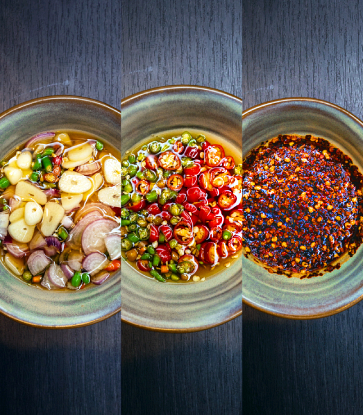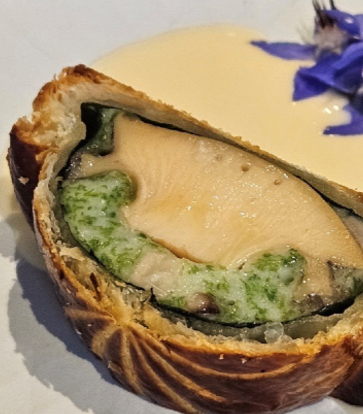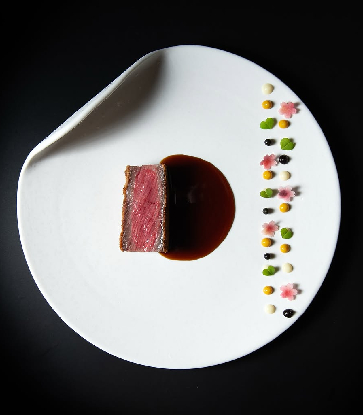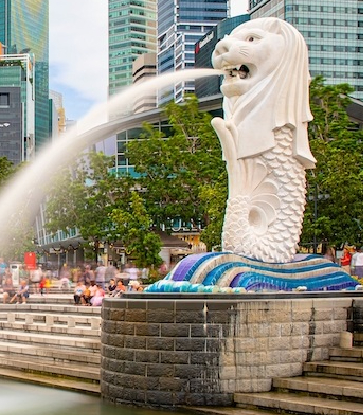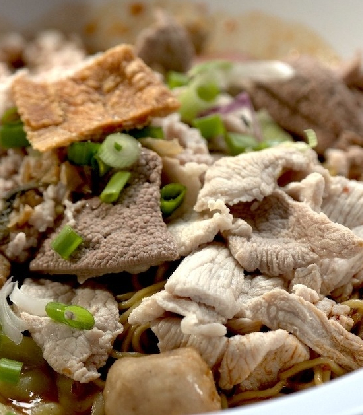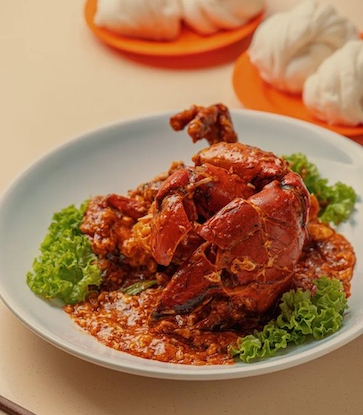While it is a mighty cliché in the restaurant world to say your food is inspired by home and hearth, MICHELIN Selected restaurant Iru Den turns sentiment into substance.
The fine diner serves elevated Taiwanese cuisine, using ingredients primarily sourced from Taiwan. The provenance is owed to chef-owner Javier Low’s Pingtung-born wife Emily Chen, who copilots the ship as Iru Den’s sommelier.
Even his mother-in-law has a part to play in the restaurant’s food, as it is she who supplies the aged cai po (preserved radish) that gives the bread course’s butter its unmistakable earthy, umami kick.
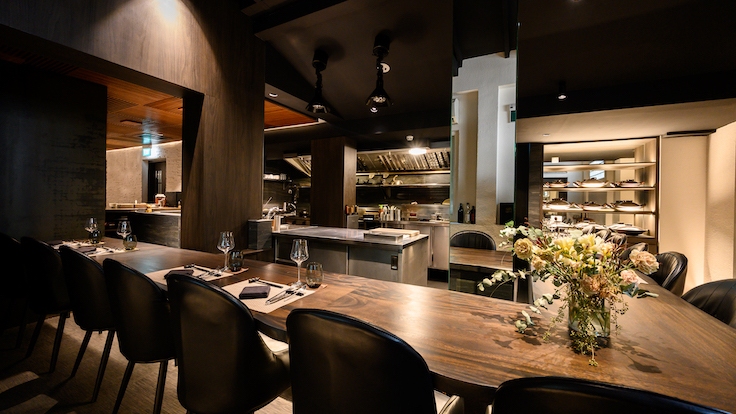
An upbringing in Japanese-European cooking
Iru Den — a Japanese phrase meaning “the den” — initially opened back in 2018 showcasing a familiar mix of Japanese and European ingredients and techniques.
This was not a matter of ability but of direction. Drawn to wine and inspired by celebrity chef Marco Pierre White, Low trained at Shatec hospitality and tourism school, before joining the MICHELIN-Starred wine-led restaurant Iggy’s.“Stepping into a kitchen like Iggy’s while I was 17 was a huge culture shock. They really helped shape me into the cook I am,” Low recalls. “I remember Iggy’s evolution over time — the changes to cuisine, adaptation and respect to ingredients.”
At Iru Den, Low absorbed the precision of French and Japanese cooking, underscored with techniques from the rest of continental Europe. Eight years later, he ventured overseas to Kyoto’s MICHELIN-Starred Cenci for a brief sojourn in Italian cuisine underpinned by Japanese ingredients.
A Taiwanese love story
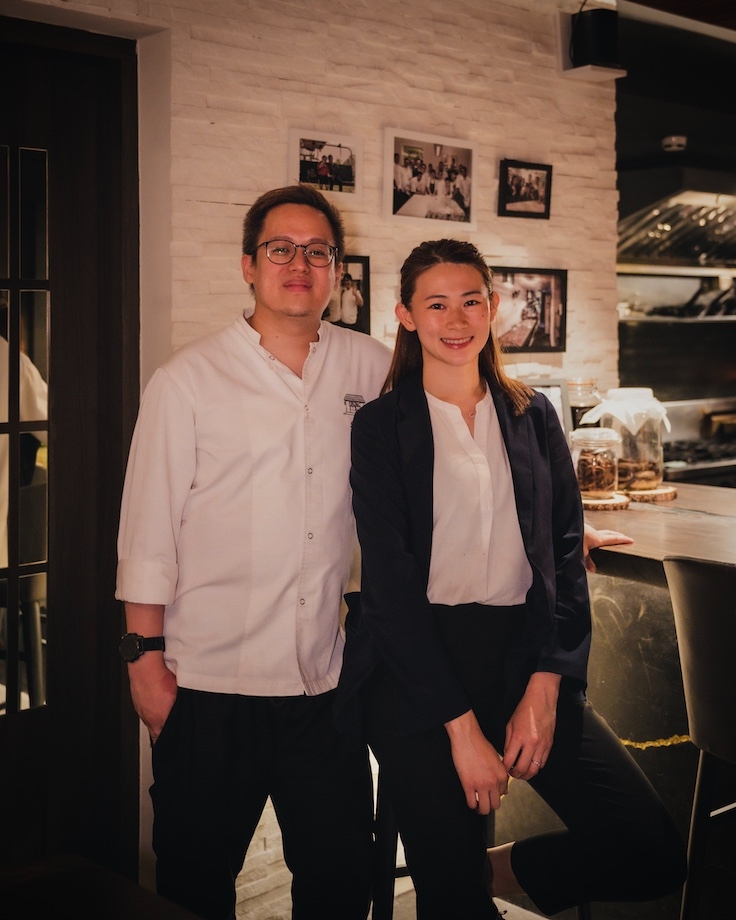
It was only natural for Low to return to his Japanese-European roots on returning to Singapore, where he set up shop in a charming black-and-white colonial bungalow off Scotts Road.
He didn’t expect his heartstrings to be pulled in a completely different direction after meeting, and falling for, his Taiwanese wife, who in turn introduced him to a new world of gastronomy.
“Over time, getting to know my wife and spending our holidays back in Pingtung in Taiwan, getting to see produce being underutilized and not given the respect it was due — that really stirred me, and in 2024, we started talking to producers, farmers and fishermen,” says Low. “Most [of these suppliers], we knew through families and friends. It was our version of ‘farm-to-table.’”
Digging up family memories
Iru Den shifted its primary focus to Taiwanese food and ingredients, with an occasional Japanese-European twist.
Low says, “I’ve always wanted to cook supporting local produce, though there are limitations in Singapore. This shift made sense for us, with Taiwan being my second home. There’s a lot of meaning working with produce there.
“It's like a new experience every day, exploring and discovering new ingredients that I'm unfamiliar with. As a chef it invigorates me, forces me to explore and create new recipes.”
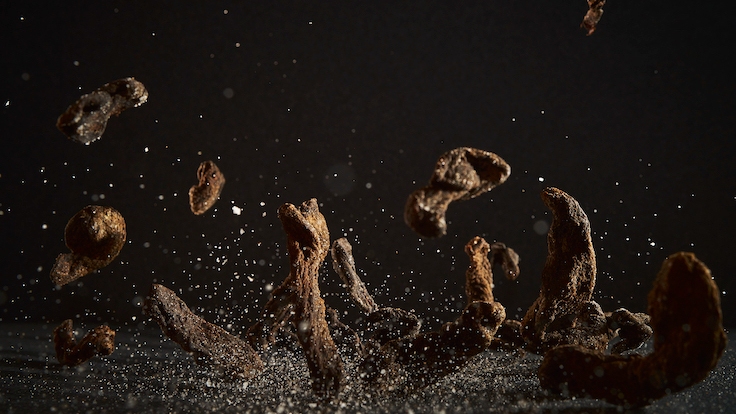
If there is one recipe that perfectly encapsulates the chef’s culinary philosophies around family, terroir and produce, it is the cai po-infused butter in Iru Den’s bread course.
The star ingredient comes from Low’s mother-in-law — not a recipe, but the preserved radish itself — washed, dried, salted and aged for years before reaching diners’ plates.
It started as a parting gift after a family trip back to Pingtung — a pungent ingredient that puzzled the chef until he found a place for it on the menu.
“I was very unfamiliar with it, and I remember storing it in my cabinet and smelling it every day when I opened the cabinet as it was so earthy,” he says. Over time, the distinct aroma of cai po stirred Low’s imagination, inspiring him to unlock its culinary possibilities.
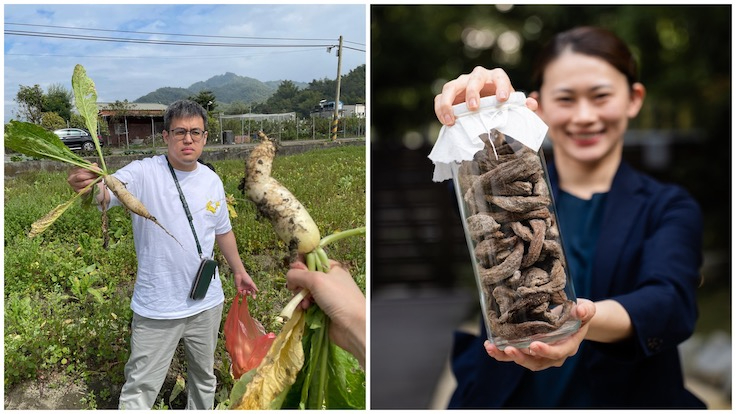
“Cai po has a very earthy aroma, [reminiscent of] mushroom, fungi and sometimes truffle. We wanted to respect the love and the time given to process the radish into cai po, so we decided to use it in the simplest ways to showcase its quality,” he says.
There’s no simpler way to bring an ingredient into sharp focus than by pairing it with blank slates such as butter and bread, or for a later course, a clear but nourishing broth.
In both cases, the cai po shines not just for its distinct and intoxicating aroma, but for the memories it brings — not the least to Chen, who grew up preparing the radish with her mother.
The chef himself credits his greatest culinary inspiration not to the wine industry or Japanese-European cooking, but to his grandmother and her homely braised pork belly buns and pig’s trotter bee hoon (rice vermicelli).
Every dish he crafts, including the cai po butter, makes visitng Iru Den feel like “entering our home kitchen”.
Iru Den’s Cai Po Butter
Ingredients:
- 500g butter
- 50g 10-year-aged cai po
Preparation:
- Split butter into two 250g portions
- Heat first 250g until browned and rest
- After cooling, mix browned butter with other 250g of softened butter and cai po
- Season to taste
Steps for ageing your own cai po:
- After harvesting white radish, wash and scrub away dirt
- Rub with coarse salt and cure for three days
- After curing, place in large jar and press under a heavy stone for five days to release its moisture
- Remove from jar and spread onto bamboo nets to dry under sun for a week
- Place in clean, sterilized jars and age for a minimum of three years
Iru Den is located at 27 Scotts Road, 228222, Singapore
All photos are from Iru Den.



